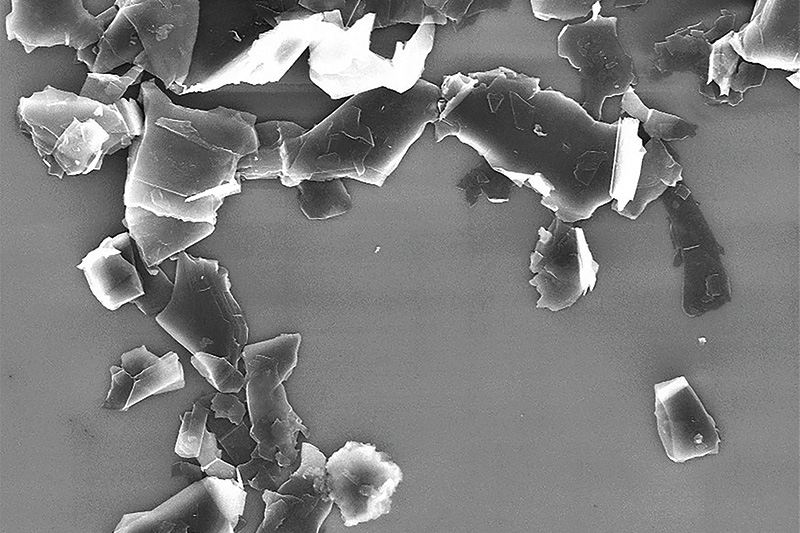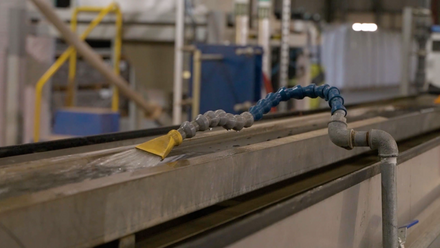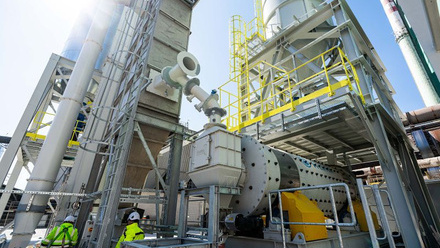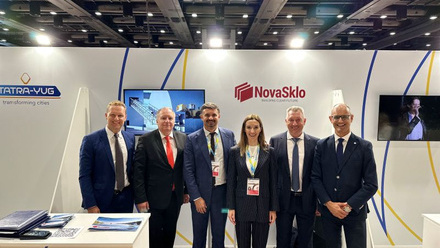Measuring materials innovation
Gareth Edwards FIMMM, Head of Advanced Manufacturing and Materials at the National Physical Laboratory, UK, calls for more support of measurement standards for advanced material innovation.

Humankind’s fascination with experimenting and shaping has led to the extraordinary developments and technology discoveries that let us lead the lives we do. From the earliest accidental discoveries to the cutting-edge developments today, people have had to consider how to control the parameters of their actions, understand what it is they did to create something, and then control the environment to do it repeatedly and assuredly.
Metrology is the science of measurement. It is what gives our innovators, manufacturers, and us as end-users, certainty, control and confidence.
The National Physical Laboratory (NPL) is the UK’s National Metrology Institute and is responsible for delivering the majority of the National Measurement System (NMS). Every country has something akin to the NMS and every major economy has something like NPL in place.
NPL’s mission is to provide the measurement capability that underpins the UK’s prosperity and quality of life. This is directly applicable to materials metrology where we apply the same mission to advanced materials. As materials become more complex and their properties become more tailored, precise measurements will become increasingly crucial to ensure their success in different applications.
To achieve that mission, NPL has a team of scientists and engineers who engage and collaborate with academia and industry to understand what the measurement challenges are, develop novel capabilities and know-how to meet those challenges, and operate a suite of world-class facilities across the UK that deliver the measurements and services needed.
Our vision is to be the highest point of reference for advanced materials measurement via a digitally integrated infrastructure – connecting physical measurements and predictive digital twins through the provision of assured data. NPL recognises that the future of measurement science will be increasingly data driven as much as it has previously been physically delivered.
The development of new technologies and techniques will allow researchers to measure the properties of materials with greater accuracy and precision, enabling the design of materials that have never been possible before.
The standardisation of measurements will ensure that research results can be shared and replicated across different laboratories and industries, accelerating the pace of advanced materials innovation and collaboration.
Materials also often operate in harsh environments where they are subjected to aggressive mechanical and chemical environments. For example, turbine blades for aero-engine gas turbines operate at temperatures that exceed their melting point, with safe operation ensured by the use of protective thermal and environmental barrier coatings. They are also subjected to high static and variable stresses and are often required to operate in an aggressive chemical environment. To provide materials data under these complex environments, measurement strategies need to be carefully designed and conducted to achieve the required results.
Designing appropriate measurement strategies to understand a material’s behaviour is essential to developing models for how materials perform in complex environments.
It is also important to consider measurements across the length scales, as a full understanding of materials’ properties and performance cannot be understood without considering the interactions of the elements of the material’s structure from the nanoscale to the macroscale.
Furthermore, nanotechnologies require developments in such capabilities as atomic force microscopy, X-ray diffraction and Raman spectroscopy, with increasing precision. While biologically inspired materials will need new in-process measurements that can reliably and accurately measure in harsh environments.

Making the case
The importance of materials science, engineering and innovation is making political headlines on a regular basis. Policies with global implications such as the US CHIPS and Science Act, Made in China 2025 and the UK’s commitments to transition to a carbon net-zero economy by 2050 being examples with direct dependency on materials.
The UK materials community is publishing vision papers and strategies, setting out the case for investments in the facilities, research and skills to meet the emerging needs.
Most recently, The Henry Royce Institute has launched a Materials Innovation Leadership Group to champion the development of a new National Materials Innovation Strategy. Innovate UK has also published its Materials and Manufacturing Vision 2050. Both call out the need for investment in metrology capability and standards to support the innovation and adoption of novel materials.
It is the role of NPL as the UK’s National Metrology Institute to set the measurement strategies and make the capability investments needed to enable the UK to achieve its ambitions and goals.
In September 2023, NPL will publish its Advanced Materials Metrology Strategy. A series of papers will follow that will dive into the detail of what research and investments will be needed, nationally and collaboratively, to achieve the outcomes needed by industry and society.
We will need to pull together forward-looking communities to develop the standards, codes and know-how needed to deliver the modern metrology capabilities.
We will have to advise policymakers on the appropriate regulations to set and investments to make in national infrastructure. This will have to be done in new and agile ways, keeping pace with the increasing use of data and machine learning, the introduction of novel materials and the machines needed to make them, and being mindful of the full lifecycle to ensure they are sustainable and have a minimal carbon footprint.
Investment in measurement science will be as important as the materials discoveries themselves if we are to take full advantage of the opportunities they offer. We hope you will engage with our vision and join us to help discover and develop the future of metrology for advanced materials.







